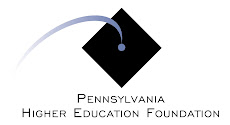By: Craig Elliott
General Outlook for NursesThe outlook for individuals considering entering the nursing field is excellent. Registered nurses, or RN's, make up the largest number of health care workers in the country. In addition, registered nurses will make up one of the fasted growing population of workers in all occupations over the next ten years.
Many registered nurses begin their career in the hospital setting. This allows the nurse to become familiar with various branches of medicine. While there is a demand for hospital nurses, this area of nursing will remain relatively level over the next ten years.
Many healthcare experts predict a surge in demand for registered nurses in the home health care setting. As Americans live longer, have more disposable income, and desire to remain home, nurses that can oversee care and treatment in the home setting will become increasingly valuable.
Another area of nursing that will see a surge in growth is with nurses who continue their education with Master's level work. With the rising cost of healthcare many families are using nurse practitioners and nurse midwives as a replacement for their primary care physician.
Hospitals, also, are realizing the cost saving benefit of highly trained nurses, and many employ nurse anesthetists, clinical nursing specialists, and nurse practitioners to keep their costs under control.
Not a Registered Nurse?Job prospects for licensed practical nurses, or LPNs, while positive, are not as strong as those of registered nurses. Licensed practical nurses will continue to be in demand, particular in hospital and long term care facilities.
Many licensed practical nurses continue their schooling to become RNs while employed. The responsibilities of an RN are greater, but they also include more opportunities. RNs typically supervise LPN in a clinical setting, and the greater skill level allows the RN more job options.
RN or BSN?The schooling necessary to become a registered nurse can be completed in anywhere from two to four years. The coursework is very intensive and involves many clinical hours. A program completed in less that four years, however, will leave you with an RN, not a BSN, or Bachelor of Science in Nursing. An RN is fully qualified to do all the duties required of a registered nurse, depending on the state. Obviously, the addition of a bachelor degree has many benefits.
An RN with a bachelor's degree in nursing is at an advantage when administrative positions open up in a hospital or clinical setting. In fact, due to the degree of federal and state oversight on healthcare facilities, many require a BSN for administrative, case management, and supervisory positions.
If you are considering working on your Master's degree, either as a nurse anesthetist, nurse practitioner, or to teach, you are required to have a bachelor's degree. While not all programs will mandate that your bachelor's must be in nursing, it is certainly helpful.
Considering a Career Switch?Nursing is an excellent opportunity for individuals looking to move into a different career. With the high demand for nurses, many potential employees, particularly hospitals, will pay for most or all of your schooling. Even if you must foot the bills for your education initially, signing bonuses, combined with the near guarantee of a job upon graduation, takes much of the risk out of a career switch.
Another attractive fact concerning the nursing profession is the attractive tuition reimbursement plans offered by many employers. These offers, combined with the flexible shift scheduling available at many hospitals and care facilities make it possible to go from a LPN, to RN, to RN with BSN and on to acquiring a master's in your desired specialty without hefty student loans or a disruption of your income.
The Future of NursingClearly all nursing professions will continue to grow over the next ten years. Nursing is an excellent career choice for those who wish to make a good income, have a flexible schedule, and continue their education. While the hours can be long, and the work physical, a quality nurse should never find themselves without their choice of jobs.
While long hours and the physical demands of the job may scare some people off, many others are attracted to the flexibility, the fast paced environment, and the ability to help others. For those concerned about the rigors of a nursing career, there are many positions available in private doctor's offices, public schools, and other lower stress environments. Nursing, whether in a clinical setting or administrative is a job in great demand.
Craig Elliott is a freelance writer who writes about topics concerning the nursing profession.










